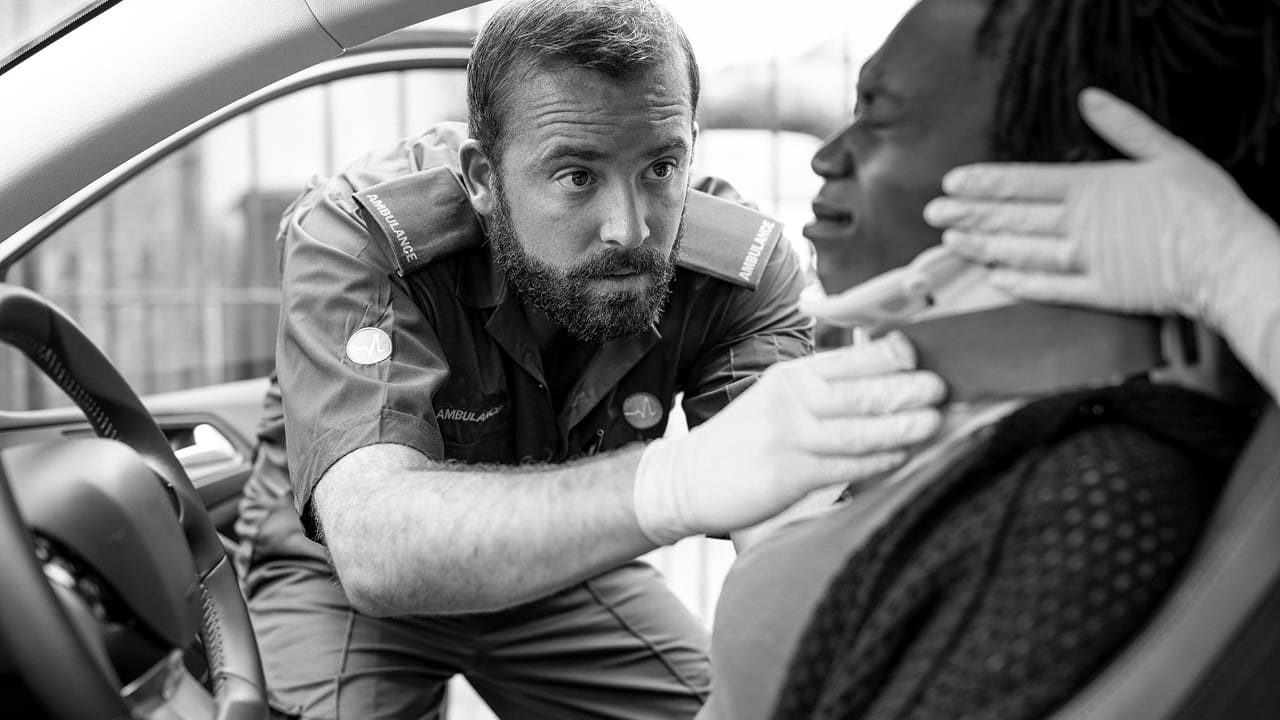What to do After a Car Accident? | The Ultimate Guide
A car accident leaves you physically and mentally shaken. As it is a jarring event. Despite the cause that arises, it initially still requires quick thinking and composed actions. An accident or injury is an event that is both painful and unexpected. For a minor cut or a bruise, it won’t require any medical assistance. But if you struggle through unusual symptoms or an intense pain, only then will you need a doctor or a medical professional.
You need to seek help from a medical source. If, for example, you experience dizziness or fatigue. To protect your health in the future, you must read about what to do after a car accident.
Table of Contents
Drugs and alcohol are among the leading causes of car crashes. There are over 15,000 car fatalities reported annually. These statistics are well recognized, which underscores the importance of remaining vigilant and avoiding the impairments behind the wheel.
The awareness and alertness while traveling can significantly mitigate the risks of car accidents, just as knowing what to do after a car accident can.
Choose Between Urgent and Emergency Care

A clear big difference is between urgent and emergency care. If you think or believe that you are going through a minor illness or injury. Then, visit an urgent care clinic for quick, affordable, and fast healthcare.
Go to the emergency room immediately if you feel that your condition is potentially life-threatening. Try finding out more related to urgent care vs emergencies, in case you are unsure about the difference between the two.
Ensure the safety of all the members or parties involved. It should be the foremost priority when you have an immediate need following such car crash accidents. Make contact with emergency services as early as possible. Also, check if there are any signs of serious injuries from car accidents. When you speak to the dispatchers, ensure to establish the location and severity of the car accident.
If you have a drivable vehicle and a minor accident, being sensible here is to move it to the side of the road avoiding any pedestrian who is jaywalking. This will prevent more accidents from taking place. It will also minimize the traffic disruption and prevent upcoming collisions.
Staying calm as much as you can holds great significance after a crash. Your emotional responses can complicate the situation even more or increase risks. A focused and calm demeanor not only helps in managing the current scenario but also in communicating effectively with emergency services and other drivers.
It is a fact that you need to consider. According to the Driver Knowledge, approximately there are around 6 million car accidents happen in the U.S. A sobering statistic points out the frequency and commonplace nature of accidents. Thus, knowing what to do after a car accident is essential for your safety, legal protection, and well-being.
Steps to Take Immediately After a Crash
The very next step after the first step of assessment completion is to address the immediate safety concerns. The chances of further collisions are decreased when you turn on the hazard lights and alerts about the looming traffic towards the incident. Even if the accident seems minor, it has an impact, resulting in the form of unseen injuries.
One should prioritise health above everything else whenever one experiences any doubt. During an expected event, it is crucial to have a travel emergency kit with essentials along with you. The kit should have all the essentials inside it.
Document the scene carefully just after you experience a crash. Take photographs of the vehicles involved, focused positions, surroundings, and damages. The visuals taken are helpful at the time of insurance claims and may help in legal proceedings.
Witness statements can also bolster the collected evidence, offering third-party accounts that validate the incident’s details. Remember, according to Forbes, one in eight drivers on the road does not possess car insurance, making thorough documentation all the more necessary.
Information must be exchanged with other drivers involved. This information comprises all your details, like contact details, names, and insurance information. Even if it may simplify later claiming processes for the minor fender-benders. You need to refrain from committing any fault or blaming others. Because the full context of a crash might not be clear immediately.
The interactions between politeness and professionalism will have the ability to defuse tension, along with facilitating cooperation among parties. Try to always inform your insurance provider about the car accident. But make sure it’s all legal and meets the contractual obligations.
Report the Injury

Report your injury as early as possible. Your employer needs to be aware of your situation. The maximum an employee may report about the workplace injury is 10 days. So, don’t drag it too late.
By doing so, you will increase your chances of securing workers’ compensation, covering your salaries. This also impacts the recovery. If not followed, then you may struggle to manage the essential expenses of your household and pay the required amount for medical bills.
There are various forms of injuries. The motor vehicle collision, fall, or food poisoning is one of its forms. Don’t hesitate to report it if caused by your company.
Identify the Source of the Injury
Such as falling or collision is something which brings an example of an impact, unless and until an injury is experienced that leads to underlying issues, which further towards other problems. A stressor that you may feel in your back, causing a spasm. It is an example when you throw your back while picking up an item or doing something by bending down.
Even being inactive, too much physical activity, or inflammatory foods could worsen your back pain and are a leading cause of it. It is recommended to alter your diet, exercise regularly, along with improving your posture. But you need to understand the root cause of the underlying issue to prevent future health issues.
Follow the Doctor’s Orders
If you come across an injury, you may need to consult a massage/physical therapist or a personal trainer who will help you recover more swiftly. However, if you are unable to follow their orders. Then, you will not be able to get back to your full health.
It’s unfeasible to fix an injury simply by seeing a health care professional one or two times per week. You may also need to focus on recovery, such as performing various exercises daily at home or taking medications.
Have a Plan of Action

If you want to recover smoothly from an injury, simply focus on reinforcing the various body areas to fully recover. For example, the chances of scarring increase if you experience an injury around your muscle tissue. With the help of massaging or tapping, to repair the scar tissue can be easily repaired. However, your joint stability can also be improved in terms of its motion. Lunging and squatting are examples of the strengthening of your knee joints in order to improve balance.
However, what you must not do is skip the above steps and attempt to increase your injured muscle’s strength. Unless you want to re-injure yourself or cause a new injury, you must focus on improving your tissue quality and joint stability first, and then focus on strength.
Talk to Your Employer About Your Return to Work
It’s pretty normal to feel anxious returning to your job just after a serious injury you’ve come across. But here what holds importance is to discuss it with your employer about how they can provide you support in getting back to work after the accident. The accident can happen inside or outside of your workplace, which doesn’t matter.
Here is an example if they are thinking of evaluating you through an ergonomic evaluation. So, for that, they must make sure to give you comfort at work to reduce the chances of re-injury.
The Importance of Preparedness and Awareness

The most underrated thing is the pre-crash preparedness. This is an aspect that significantly influences the handling of post-accidents. Make sure that your vehicle is well-prepared in terms of having a well-stocked emergency kit. This includes all the first-aid supplies along with emergency contact numbers.
Additionally, technical failures can be avoided by conducting daily maintenance checks. This will lessen the chances of accidents happening. If you are proactive in matters of vehicle safety, then it will eventually reduce vulnerabilities and increase the driver’s confidence while traveling.
The statistics show that a great number of individuals experience car accidents every year. Therefore, one should opt for a sense of safety and preparedness. Given the high number of car accidents annually, everyone should learn what to do after a car accident to ensure safety and effective handling of emergencies. The awareness campaigns are promoted with a purpose in serving to educate the public about the importance of safety.
If you are Injured

Medical Payments coverage, if purchased, may provide some assistance for your doctor and hospital bills, regardless of fault. Bodily injury claims can include doctor and hospital bills, laboratory fees, lost wages, and pain and suffering that are a direct result of the accident.
There are no guidelines that the General Statutes of North Carolina establish about the calculation of any amount owed to you for pain and suffering. You may wish to seek legal advice, in case you and the insurance company cannot agree on the value of your claim.
What if the Insurance Company and I Cannot Agree?
This is a valid and important question that needs to be taken into consideration about her. So, you and the insurance company both need to agree on the amount paid for collision or if any other coverage than collision. Both situations can happen.
You can select to use the appraisal provision of your policy. According to the provision, you and the insurance company will each choose a competent appraiser. The two appraisers will then select an umpire. The appraisers will state separately the ACV and the amount of loss. If they disagree, they will submit their differences to the umpire. A decision by any two will be binding.
The insurance company and the insured will pay their chosen appraiser and bear the expenses of the appraisal and the umpire.
You Might Like to Read: A Comparison of Canadian and American Driving Habits
